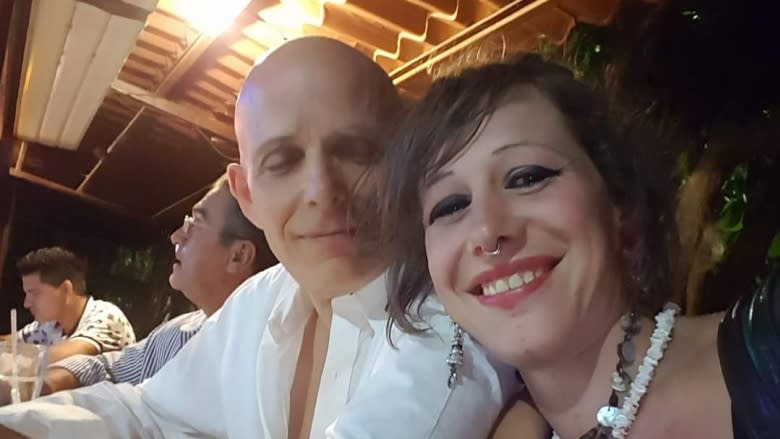A life off the grid: Idyllic then deadly
Adrienne Volaine grew up in a house built by her dad in a Hare Krishna community on an off-the-grid patch of rural B.C.
Volaine, 32, said her childhood — in the Venables Valley south of Ashcroft, B.C. — was idyllic and carefree. She and her siblings played outdoors all year round. Her father was a painter, sculptor and mechanic.
Their house, built from old tires and clay on the side of a hill was one of her dad's crowning accomplishments.
Last week, her father, Harvey Volaine, 60, his wife, Melissa Penner, 32, and their two sons, Kaylex, 11, and Ay, 6, were found dead in the same house.
The BC Coroners Service concluded the family was likely killed by carbon monoxide gas leaking from a propane-powered hot water tank.
The deaths have plunged the tightly knit community into mourning, but Volaine also noted that the tragedy also brought criticism of the back-to-basics lifestyle practised by Hare Krishna devotees there.
She said some of the comments posted on news stories were hurtful, suggesting that people in the community live in squalour.
Volaine said that's untrue.
"I had the most amazing childhood," she said in an interview.
"I ran free on that farm with all my friends. I was friends with everyone there, all the kids growing up. We went swimming in the summer and skating on the lake in the winter.
"It was a very imaginative lifestyle," Volaine said.
The deaths have also focused attention on the danger of carbon monoxide in homes, which is described as a silent killer.
Most Canadian homes aren't required to install inexpensive life-saving detectors along with smoke alarms, according to the Canadian Association of Fire Chiefs.
Beginning in 2010, a national building code made it mandatory for new homes to be fitted with carbon monoxide detectors, but people in older dwellings also need the same protection, said Pierre Voisine, a director with the association
Voisine, who is the fire chief in Cornwall, Ont., said the suspected carbon-monoxide poisoning deaths of the Volaine family highlight the need for all homes, not just new ones, to have detectors.
Volaine said her father and his family died not long after they returned from a family vacation to Costa Rica. Volaine had joined her father on the holiday along with her mother and sister.
Inspectors later told Volaine that the carbon monoxide came from a leaking propane-fuelled hot water heater. The inspectors told her they tested the heater and it emitted lethal levels after about 40 minutes.
More education needed
Volaine said there should be more education about carbon monoxide poisoning.
"A lot of people up there probably don't have carbon monoxide meters," she said. "The education isn't there."
She also thinks that equipment that can emit carbon monoxide — such as water heaters — should come with detectors.
Volaine described her father as a creative artist and sculptor with an interest in religion.
"He questioned everything," she said.
Volaine said her family moved from Ontario to the Hare Krishna community when she was a child.
She said the houses in the area rely on generators for electricity. Some have indoor plumbing, but others use outhouses.
She didn't think of herself as poor or deprived growing up.
"We weren't dirty slum kids. We were clean and fed. We used propane stoves for cooking and wood stoves for heat.
"It was actually quite nice."



